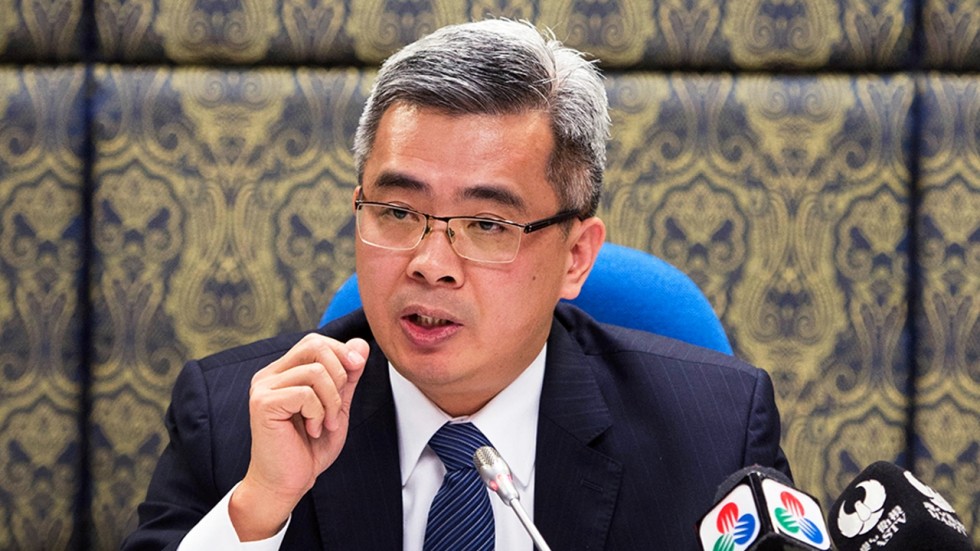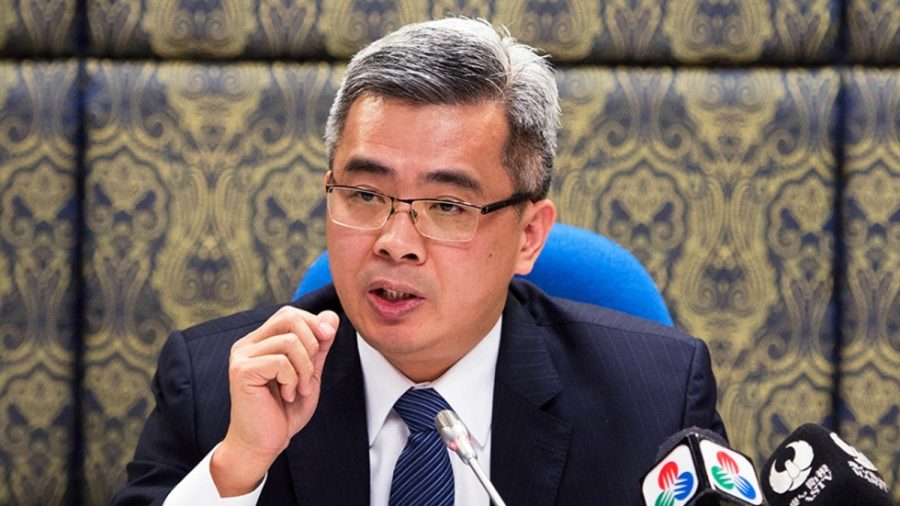Secretary for Security Wong Sio Chak said Wednesday that Macau’s ability to tackle disasters over the past 12 months – after deadly Super Typhoon Hato pummelled the city – has “hugely” increased.
Wong also said he was confident that if Macau were to face typhoons as strong as Hato in the future, the government could minimise the casualties. However, Wong acknowledged that he believes that there is no government in the world that can ensure zero casualties caused by a storm as strong as last year’s Hato. He was quick to add that the government always aims for zero casualties – even in the case of a typhoon as ferocious as Hato.
Wong also said that Macau would need to constantly increase its awareness and capability of disaster prevention, adding that tasks in preparation of possible disasters needed to be carried out forever.
Wong also said that the city’s various public security entities completed their post-Hato short-term measures last month, with the aim of increasing Macau’s ability to tackle typhoons and other disasters.
According to the government, the short-term measures by the security portfolio include the purchase of various kinds of new disaster relief equipment with the aim of improving the government’s rescue capabilities, improved coordination of the government’s civil protection tasks, and the organisation of typhoon drills.
Wong made the remarks yesterday when attending a current affairs phone-in programme hosted by Ou Mun Tin Toi, the Chinese-language radio channel of government-owned broadcaster TDM.
Today is the 1st anniversary of Super Typhoon Hato which devastated Macau on August 23, 2017, when it killed 10, injured 244 and resulted in massive flooding in the city’s low-lying areas.
Super Typhoon Hato – the fiercest typhoon to have hit Macau since 1953 – resulted in financial losses officially estimated at 12.5 billion patacas.
After Hato hammered Macau on August 23 last year, the ensuing massive floods in different districts across the Inner Harbour area, as well as in Fai Chi Kei and Ilha Verde resulted in huge piles of soaked rubbish in streets and alleys, particularly in Rua de Cinco de Outubro and Rua do Almirante Sergio and their surrounding areas. Local security forces personnel, street cleaners and rubbish collection personnel, as well as scores of volunteers, struggled to remove the stinking piles of debris and rubbish.
Following a request by the local government to the central government for the People’s Liberation Army (PLA) Macau Garrison to help in the aftermath of the calamity caused by Hato, about 1,000 PLA officers and rank and file helped remove the huge amount of debris and waste.
It was the first time the local government had asked the PLA garrison for help. The move was in line with a national law on the setting-up of the garrison in Macau, according to which the local government can request the garrison’s assistance to maintain public security or tackle a disaster. Thanks to the PLA soldiers’ hard work, Macau was able to return to a degree of normalcy after three days.
Many residents praised the PLA soldiers as heroes.
During Wednesday’s phone-in programme, Wong said that despite the government’s utmost effort to carry out various tasks in response to the Hato aftermath, the super typhoon highlighted its then insufficient ability to tackle disasters and the failure of its mechanism to respond to disasters.
Wong said that after the completion of the short-term measures to tackle typhoons and other disasters, his portfolio was now pushing ahead with its medium-term measures, including preparations for a new civil protection framework law. He noted that a public consultation on the matter has recently been completed –the government will now start drafting the bill which will then be submitted to the legislature for debate and vote.
Wong noted that in the long term the government will construct a civil protection operations centre building, in addition to the existing one in Pac On in Taipa. The planned new building will also include a warehouse for disaster relief equipment, according to Wong.






